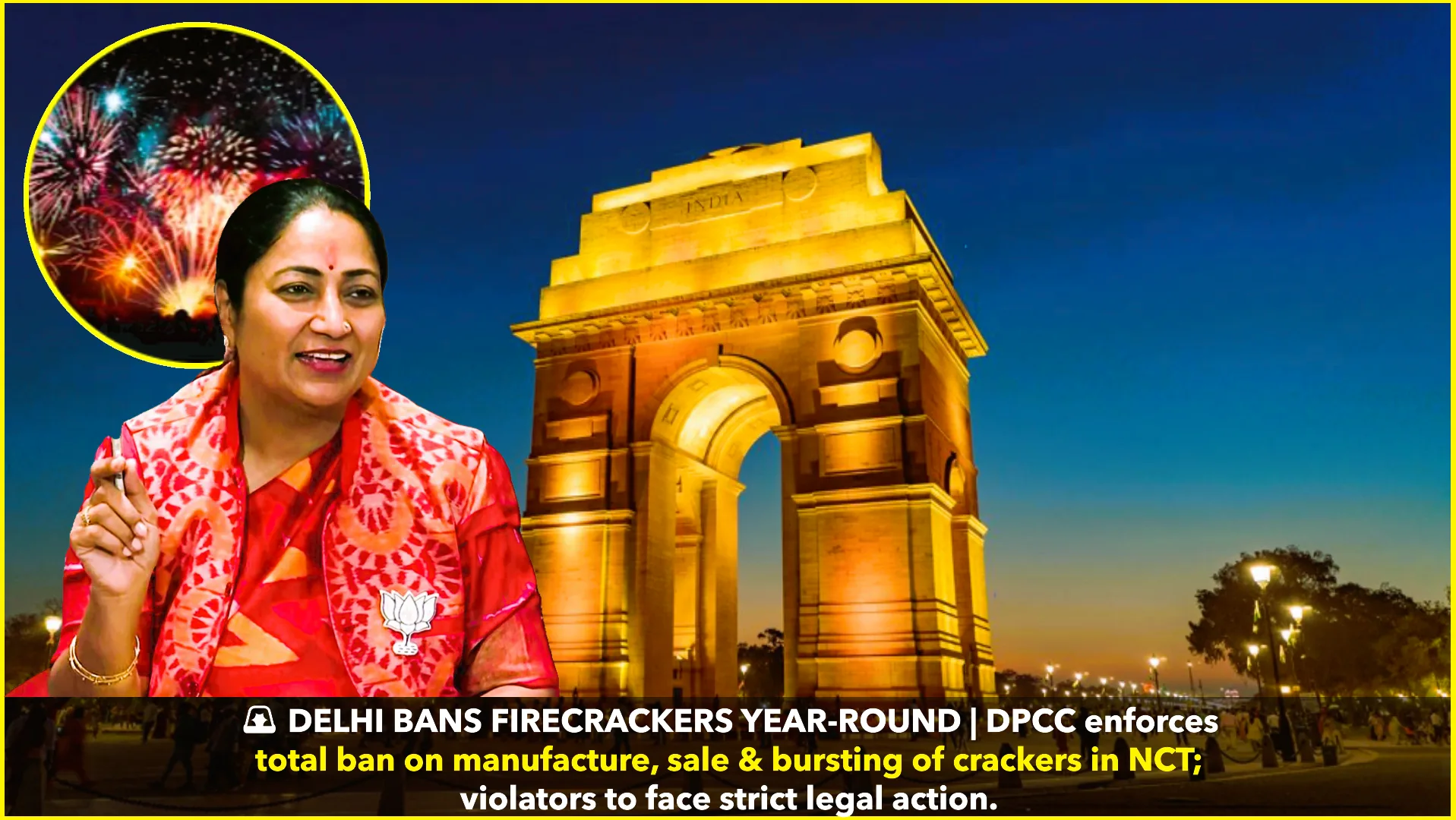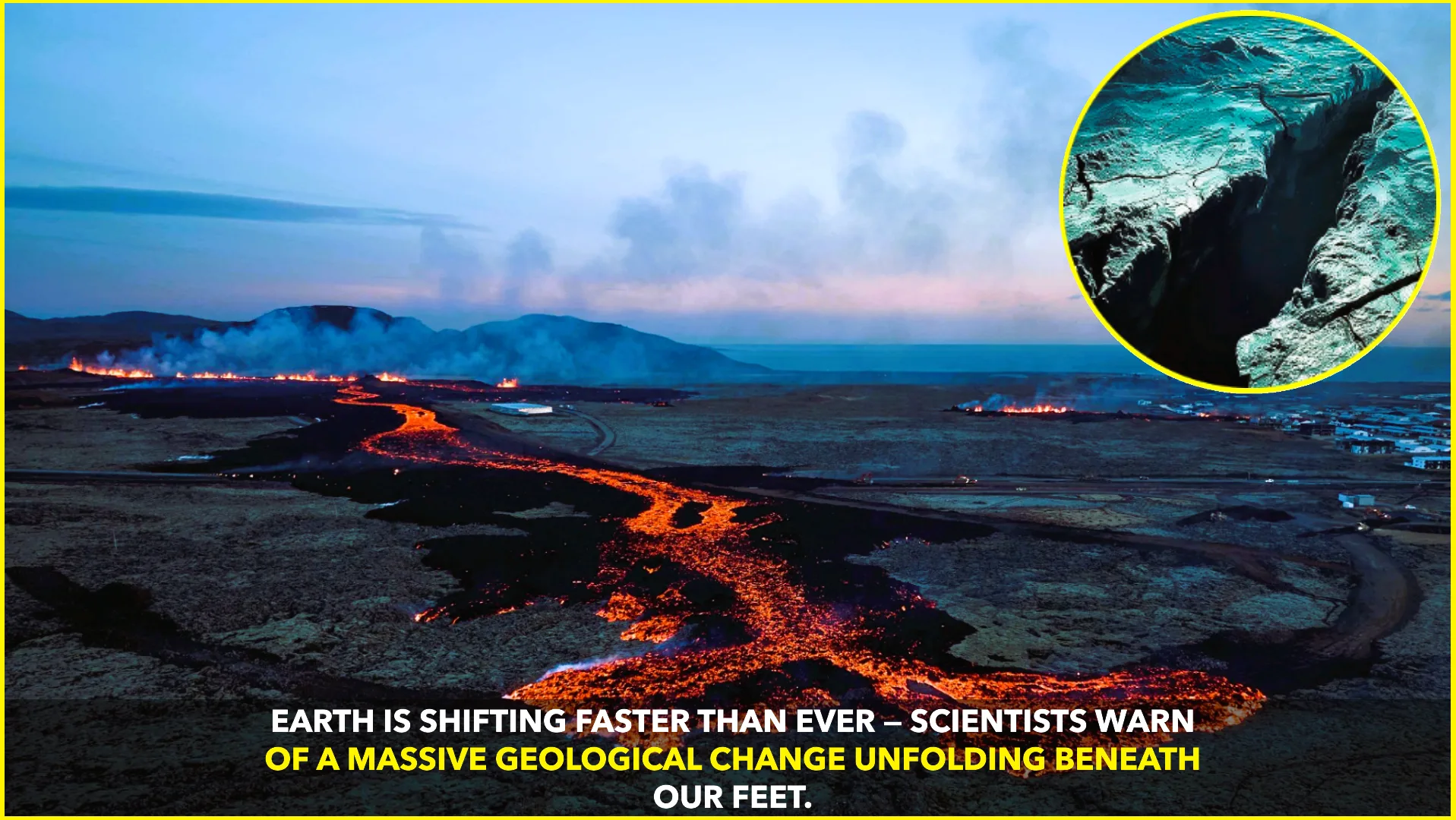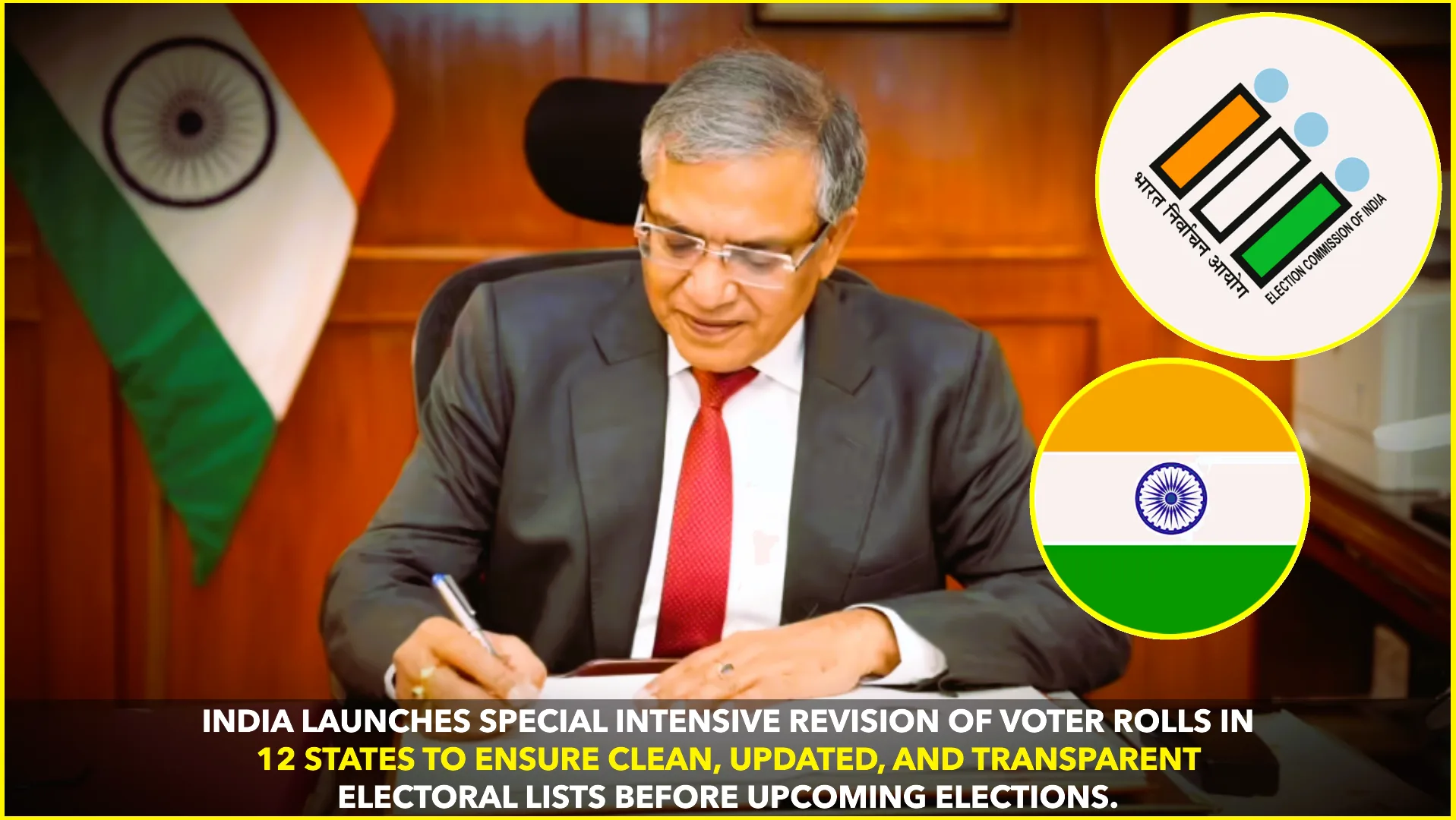In a decisive move to curb hazardous air pollution levels, the Delhi Pollution Control Committee (DPCC) has imposed a complete and year-round ban on the manufacture, storage, sale, and bursting of all types of firecrackers within the National Capital Territory (NCT) of Delhi. The decision, announced through a public notice issued on Sunday, falls under Section 5 of the Environment (Protection) Act, 1986, and is applicable to all individuals, groups, organisations, and institutions.
The notification mandates strict compliance and warns that any violation will invite legal action, including fines and possible imprisonment under environmental protection laws.
Why the Ban Was Enforced
The directive stems from mounting concerns over Delhi’s deteriorating air quality, especially during festive seasons like Diwali, when the bursting of firecrackers leads to dangerous spikes in PM2.5 and PM10 levels, severely impacting the health of residents, particularly children, the elderly, and those with respiratory ailments.
According to DPCC, air pollution in Delhi remains among the worst in the world, and firecrackers contribute significantly to short-term and long-term health risks. The city’s pollution levels often soar beyond safe limits, triggering public health emergencies.
“Repeated instances of severe air quality during and after the festive seasons require immediate and decisive action. This blanket ban is crucial for safeguarding public health and the environment,” said an official statement from the DPCC.
Scope of the Ban
The ban applies to all conventional and ‘green’ firecrackers, including sparklers, rockets, bombs, and other pyrotechnics. Authorities have also directed local enforcement agencies to intensify monitoring and inspection drives across markets, warehouses, and residential areas to ensure compliance.
No exceptions have been made for cultural or religious events, signaling the government’s intent to enforce environmental laws uniformly without exemptions. Police and civic authorities have been tasked with implementing the ban, and residents have been encouraged to report violations through helpline numbers and mobile apps.
Public Response
The announcement has sparked mixed reactions. Environmental activists and medical professionals have welcomed the decision, calling it a much-needed step in Delhi’s battle against air pollution.
“This will save thousands from seasonal respiratory distress and can significantly reduce pollution levels if strictly implemented,” said Dr. Arvind Kumar, a lung specialist and environmental health advocate.
On the other hand, firecracker manufacturers and traders have raised concerns about their livelihoods, urging the government to provide financial support or alternative employment schemes.
Legal Backing and Future Enforcement
The ban is legally backed by Section 5 of the Environment (Protection) Act, 1986, which allows state authorities to issue direct orders to control environmental degradation. The DPCC’s move aligns with the Supreme Court’s previous observations urging states to adopt strong measures against air pollution.
The Delhi government has promised zero-tolerance enforcement, especially during festivals and public celebrations. Authorities have also urged neighboring states to cooperate and adopt similar measures for regional impact.
Conclusion
As Delhi struggles with one of the world’s most polluted air environments, the DPCC’s year-round firecracker ban stands as a firm and necessary measure. If properly enforced, it could serve as a model for other metropolitan cities facing similar environmental threats.
Sources:
- Delhi Pollution Control Committee (Official Public Notice)
- The Hindu: DPCC Imposes Firecracker Ban
- Times of India: Delhi Firecracker Ban 2025










